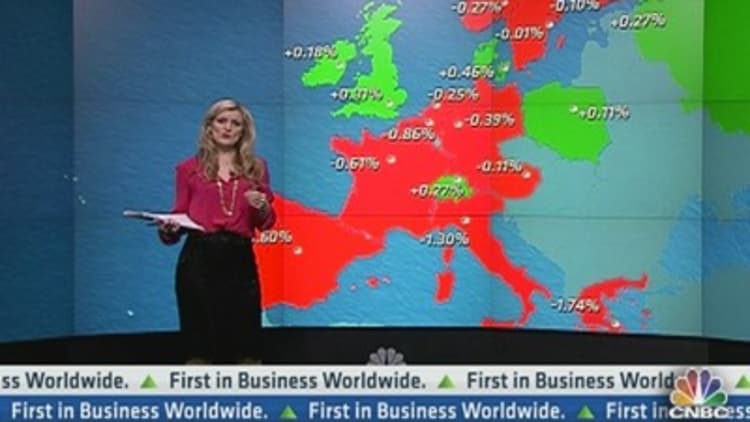
European shares edged lower on Friday, impacted by weaker bank and mining stocks, and traders expected equities to stay trapped in a tight range this month with uncertainty over Italian elections denting sentiment.
European markets
The pan-European FTSEurofirst 300 Index provisionally closed down 0.2 percent at 1,169.21 points while the euro zone's blue-chip Euro STOXX 50 index fell 0.6 percent to 2,617.45 points.
The STOXX Europe 600 Basic Resources index, which includes mining stocks, was the worst-performing equity sector as it fell 1.8 percent on fresh signs of an economic slowdown in China, which is the world's biggest metals consumer. Shares in companies like Rio Tinto and Kazakhmys closed sharply lower after China's official Purchasing Managers' Index (PMI) came in at 50.1 for February, down from 50.4 in the prior month.
The STOXX Europe 600 Banking index also retreated 1.2 percent, with British bank Lloyds falling 2.7 percent after setting aside 1.5 billion pounds ($2.3 billion) to compensate customers who were mis-sold loan insurance.
However, shares in Old Mutual led the gainers on the FTSE 100, closing 4.39 percent higher, after the bank announced a rise in full-year profit and detailed an expansion plan in Africa.
The British pound fell below the key psychological level of 1.5 against the dollar, before stabilizing to 1.5008, on Friday. The nearly 1 percent decline followed weak manufacturing data.
(Read More: Pound Tumbles as UK Heads for Further QE)
Data out on Friday showed Italy's unemployment rate jumped to 11.7 percent in January, its highest level for at least 21 years; Italy's FTSE MIB Index closed provisionally down 1.3 percent. The country remains mired in political uncertainty since its inconclusive general election at the start of the week.
Rupert Baker, a European equity sales executive for Mirabaud Securities, expected stock markets to be rangebound in March before then resuming an upwards trajectory in April.
"March is normally rangebound before it improves for another push higher in April," he said, adding that investors were still buying shares on days when the market fell due to expectations of a gradual rally on equities over the course of 2013.
"Are we still buyers on the dip? Yes, more or less."
Investors in Europe remain cautious ahead of the "sequester" - around $85 billion of automatic spending cuts - due to strike the U.S. at midnight, potentially undermining its economic recovery.

